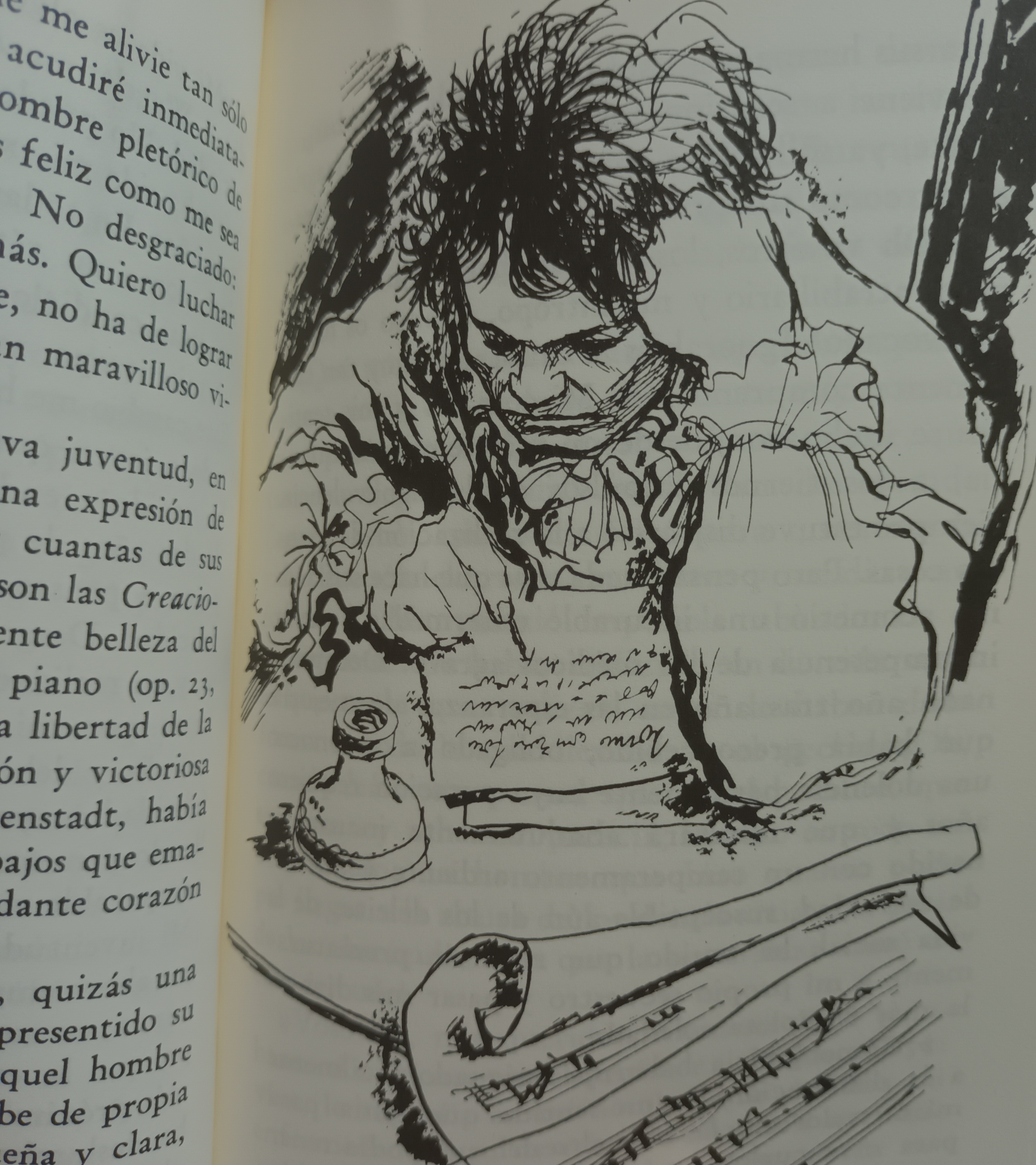Reading Beethoven's life in his 197th birthday
Hello, readers!
This is my first time posting on this fascinating community. It's nice to see how the blockchain doesn't stop expanding to new horizons every time. Fortunately, this space made me gain enough confidence to dare posting a short review on one of my favorites of all times: Beethoven (RIP birthday boy).

Perhaps the biography you see most around is precisely the one I show above, the one by Emil Ludwig. This author was also a biographer of historical figures such as Napoleon, Rembrandt or Jesus Christ.
Regarding the life of the genius from Bonn, Emil Ludwig begins by saying that Beethoven was one of twelve children. As he had an exceptional voice, his father went ahead and thought that his son could be part of the church choir. From then on, this shaped the path of the little genius, who soon became interested in the harpsichord.
While still a child, he began to show his talent by playing in a way that his contemporaries said would surpass masters such as Mozart and Haydn. In addition, his effervescent, passionate, sentimental temperament, accompanied by a small, stocky, dark-skinned physiognomy, made Beethoven (known as the spagnol at home) an easily recognizable character in the years to come.
According to Emil Ludwig, there was no greater Beethoven enthusiast in his youth than Count Waldstein, who not only opened more doors for him in Bonn, but even eased his entry into Vienna, the most musical society of the time. In fact, there he would have the opportunity to meet Mozart, who in turn would augur a brilliant future for him.
As an example of how important Count Ferdinand Waldstein was in the beginning of his career, Beethoven would dedicate to him years later—perhaps still grateful—his piano sonata No. 21, known precisely as Waldstein (I highly recommend it).
However, in his meteoric Viennese career it was not long before his greatest misfortune revealed itself to him: deafness. When he was only 25 years old, he already began to notice that his hearing was not at all good, and this obviously exasperated him. What great artist does not have a life of suffering? Ironically, this misfortune does not seem to discourage him. On the contrary, he became more and more willing to compose piano sonatas, violin works and his second symphony.
Time goes by and both Beethoven's deafness and his musical corpus grow to ever greater levels. His disciples help him to compose and the genius from Bonn begins a more contemplative life in his late forties when he can hardly hear anything.
“My God, is in the forest I am happy. What serenity, what peace! Only in the forest can the soul rise to you, only among these fronds can I serve you,” Emil Ludwig came to pick up, as a phrase that in my opinion dictates much of what would be the beginning of the Romantic movement, invaluable legacy for universal music from the nineteenth century onwards.
Today, on his birthday, I read a little of his life, while listening to his music and I say to myself that there was no classical composer who better captured his passion in art. A genius who has truly inspired mankind from within.


All images shared on this post are my own.
Banner created on Canva.
Hello @gabmr welcome to Hive Book Club community. We're happy to see you and hope to see you buzzing in our community too.
Hello! Thanks. It's my biggest pleasure 😇